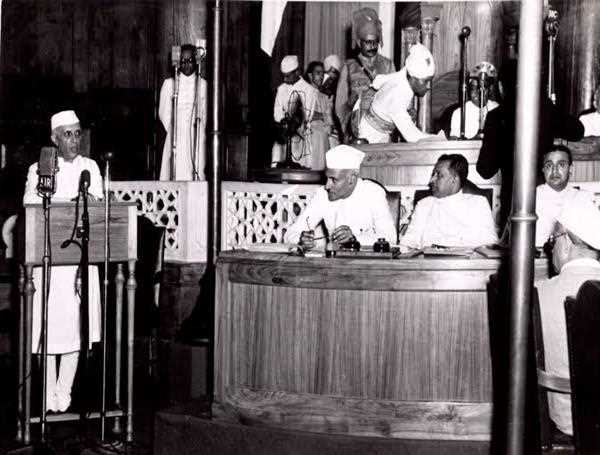The phrase "tryst with destiny" was coined by the first Prime Minister of India, Jawaharlal Nehru, in his famous speech delivered on the eve of India's independence on August 14, 1947. Nehru's speech, often referred to as the "Tryst with Destiny" speech, is considered one of the most powerful and inspiring speeches in Indian history.

In his address to the Constituent Assembly of India, Nehru eloquently captured the significance of the moment as India was about to embark on a new journey as an independent nation. The phrase "tryst with destiny" symbolizes the profound and transformative nature of the events unfolding before the nation.
Nehru began his speech by acknowledging the sacrifices made by countless freedom fighters and the resilience of the Indian people who had fought for independence. He emphasized that the future of India lay in the hands of its citizens and that they had the responsibility to build a nation that upholds democracy, equality, and justice.
The phrase "tryst with destiny" encapsulates the idea that India's destiny was being shaped and that the nation had a rendezvous with its own future. Nehru envisioned an India free from the shackles of colonialism, where every citizen would have the opportunity to thrive and contribute to the nation's progress.
Nehru's speech emphasized the importance of unity and inclusiveness. He spoke about the diversity of India and its rich cultural heritage, highlighting the need for tolerance and understanding among different communities. He emphasized that India's independence marked the beginning of a new era where all individuals would be treated with dignity and respect.
The "tryst with destiny" speech resonated with millions of Indians who were filled with hope and optimism for the future. Nehru's words inspired a sense of national pride and a commitment to building a prosperous and inclusive nation. He urged the citizens to work together to eradicate poverty, illiteracy, and social inequalities, and to uphold the principles of justice and democracy.
Nehru's vision for India as outlined in the "tryst with destiny" speech laid the foundation for the country's development and progress in the subsequent years. His ideas on secularism, social welfare, and industrialization became guiding principles for India's governance.
In conclusion, the phrase "tryst with destiny" was coined by Jawaharlal Nehru in his speech on the eve of India's independence. This iconic speech, filled with hope and optimism, symbolized the beginning of a new era for India. Nehru's vision of a united, diverse, and prosperous nation continues to shape India's journey, and his words remain an inspiration for generations to come.